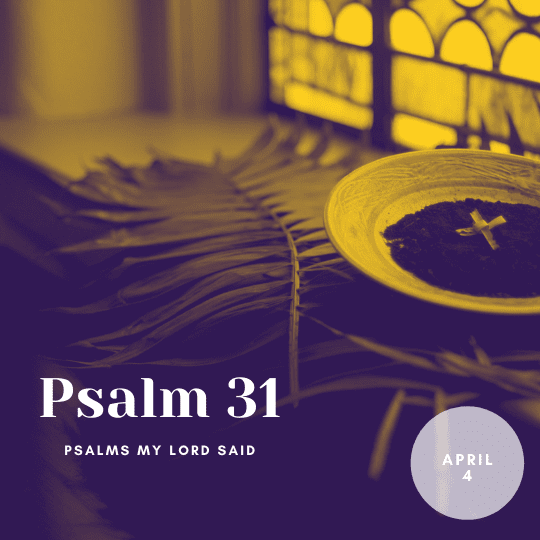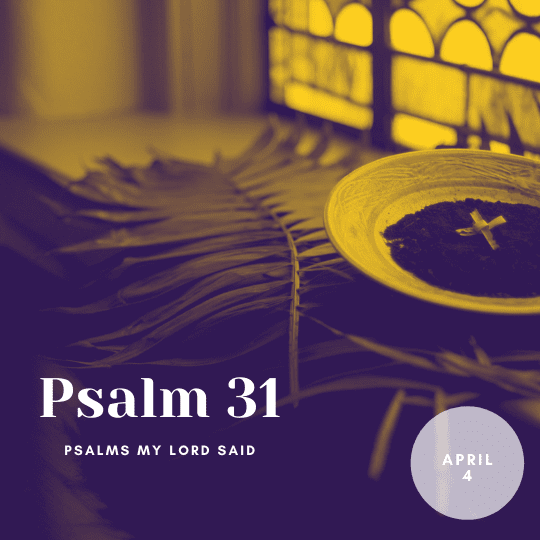Written by Drew Colby, Pastor of Grace United Methodist Church in Manassas, VA

One year on Good Friday a friend decided to recite all 150 Psalms out loud while kneeling in front of the cross at his church (a practice I do not recommend, dear reader, because I care about your knees!). I think the idea was to use the Psalms, and a little physical pain and discomfort, as the lens through which he pondered the crucifixion. While he prayed the Psalms he imagined all of them as the words of Christ from the cross.
Psalm 31 is a Psalm of absolute pain and discomfort. It’s a prayer of complete distress.
Be gracious to me, O Lord, for I am in distress;
my eye wastes away from grief,
my soul and body also.
For my life is spent with sorrow,
and my years with sighing;
Christ quotes this Psalm from the cross in Luke in his moment of complete distress (I know, it seems as if Lent has barely begun, and already we find ourselves at the cross!).
I am the scorn of all my adversaries,
a horror to my neighbors,
an object of dread to my acquaintances;
as they scheme together against me,
as they plot to take my life.
But none of the above verses is the one Christ chooses to pray aloud in Luke 23. In the midst of ultimate suffering, in the midst of despair, Christ chooses not the verses from Psalm 31 that express the depths of his despair. He chooses verses that express the depths of faith.
I am in distress, but…
I trust in you, O Lord;
I say, “You are my God.”
My times are in your hands;
Into your hands I commit my spirit.
I find this level of trust both beautiful and, well, impossible. How could you trust a God who has left you to suffer and die despite your complete and unwavering obedience to this God’s commands? It is impossible, unless…
Unless you know this God completely… Unless you know this God has not left you at all. It’s an impossible trust unless you know you can trust this God like a Son can trust a Father, unless you know you are not suffering this alone, and that this is not the end. It is an impossible trust… unless you know that this God and you are one.
And that is the key.
When Jesus prays this Psalm from the cross he reveals to us the triune life of God into which humanity is being reconciled. Here, at the depths of suffering, the Son entrusts his Spirit into the hands of the Father, and three days later, when he is raised, his trust is vindicated eternally.
This is the good news: by the power of Christ’s death and resurrection, given to us in our baptism by grace through faith, we have become those who, with the Son, by the power of the Holy Spirit, can fully entrust ourselves to the eternal hands of God the Father. And we can do so even and especially in the depths of despair.
In the cross our despair is revealed to be God’s own despair, and in the resurrection Christ’s trust becomes our own trust, freeing us to rise from our knees, and walk by faith in the name of the Father, and of the Son, and of the Holy Spirit.

